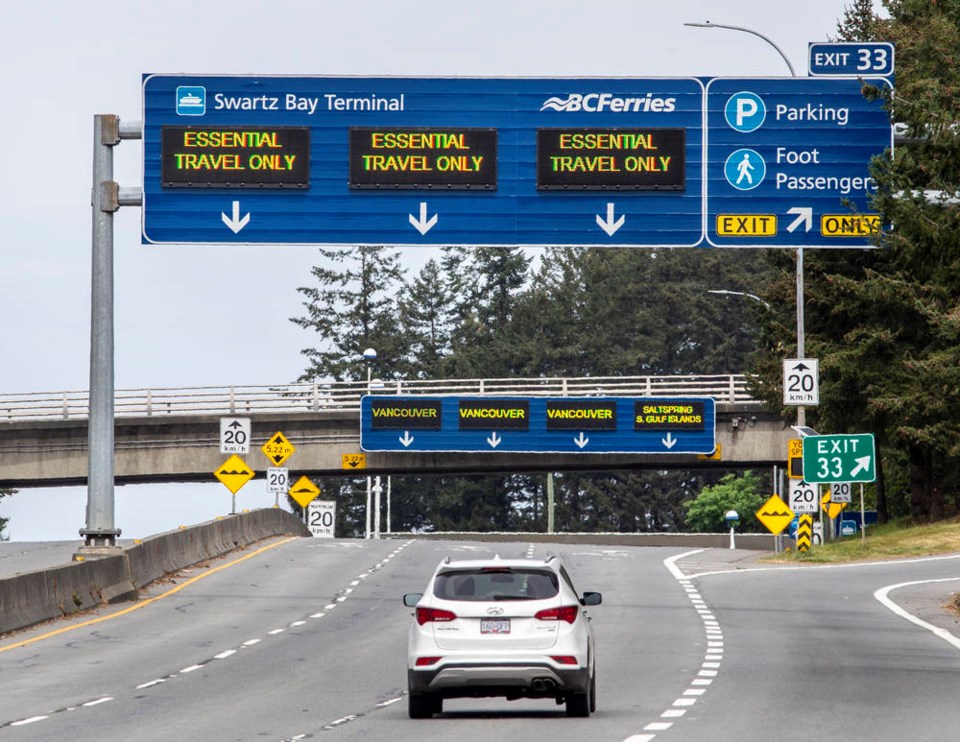It is disappointing, to put it mildly, that Canada’s political leaders have taken so long to get serious about travel restrictions during the COVID-19 pandemic.
Between April 7 and 16, 10 flights arrived in Vancouver from Delhi with infected passengers on board.
That was hardly surprising, since India is in the midst of a major outbreak, with up to 350,000 cases reported daily. India might also be the source of a new coronavirus variant.
Over the same period, flights arrived in Vancouver from Amsterdam, Dallas, Mexico City, San Francisco, and Seattle, all with infected travellers aboard. And numerous flights arrived from cities elsewhere in Canada.
Bowing to pressure from the provinces, Prime Minister Justin Trudeau has ordered a month-long ban on flights from India and Pakistan.
But planes arriving from other heavily infected countries have not been halted. There are almost as many COVID-19 cases in Brazil, for example, as in India, yet flights are still coming to Toronto and Montreal from that country. Why is the prime minister dithering in this manner?
Then we had the spectacle last week of climate protesters marching through the streets of Vancouver and Richmond, taking the ferry to Swartz Bay, and walking to the legislature in Victoria, uncaring about the risk of bringing COVID-19 with them.
Asked if they weren’t aware that travel of this kind is discouraged for all but emergency situations, their leader told reporters that climate change is an emergency. The police did not impede them.
Whether this was the last straw, after months of fence-sitting the provincial government has announced that travel outside local health authority boundaries is now restricted unless it is essential.
The order, made under the Emergency Program Act, will be enforced with roadside police checks. B.C. Ferries will turn away travellers unless they say their trip is essential.
In addition, campsite bookings will be confined to applicants living within the same health authority. And warning signs have been posted at B.C.-Alberta road crossings.
The new restrictions will apply until after the long weekend, ending May 25, and may be extended if circumstances warrant it.
Yet even here, uncertainty reigns. Public Safety Minister Mike Farnworth has warned residents of the capital region against visiting Nanaimo unless the trip is essential.
But these two cities are within the same health authority. Is Farnworth confusing health authorities with local health areas?
There are 14 of these in the Island Health Authority, and Victoria is indeed within a different local health area than Nanaimo. But then again, Saanichton is in a different local health area than Victoria.
Are residents of Saanichton to avoid travelling to Victoria?
This is utterly confusing.
The broader question is why our leaders waited until now to get serious. We are deep into the third wave of the coronavirus outbreak.
Premier John Horgan’s reason for withholding such measures earlier was that he had received legal advice that imposing this kind of restriction on mobility would be unconstitutional. He did not, however, make that advice public.
On its face, this seems an excess of caution. Law enforcement agencies already have great latitude when pulling over motorists.
Nevertheless, if additional police powers were needed, there was always the option, now finally adopted, of using the Emergency Program Act to confer those powers. Why was this not done earlier?
It is difficult to avoid the conclusion that our political leaders have been weighted down with pleas from various business sectors, the tourism industry in particular.
In one respect, that’s understandable. But ensuring public health and safety is surely the greater duty.
There is also the concern, voiced by researchers at Simon Fraser University, that the current vaccination schedule might not be extensive enough to achieve herd immunity any time soon.
If so, this means travel limitations might have to be prolonged.
In that event, as Jack Knox wrote last week, we don’t need the 10 Suggestions. We need the 10 Commandments.
- - -
Write a letter to the editor: [email protected]



